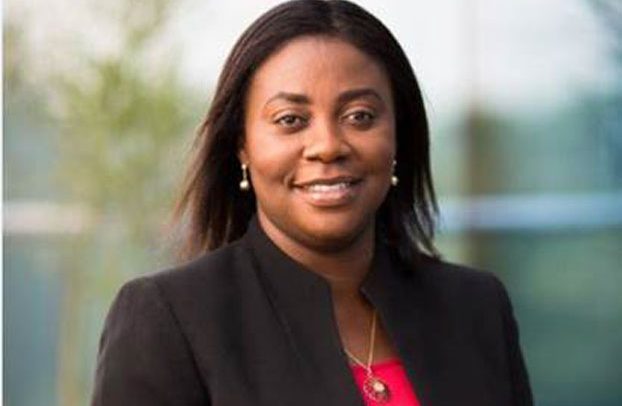
There is a need for an urgent national dialogue on how to rescue the cedi, Director of Research at the Institute of Economic Affairs (IEA) Dr John Kwakye has said.
He observed that the official exchange rate has moved from 4.20 at the end of 2016 to 15.09 as of 9 August 2024, implying cumulative depreciation of 72% during the period.
“There is a need for an urgent national dialogue on how to save the cedi from extinction!” her wrote on his X platform.
Dr John Kwakye further indicated that fiscal discipline on the part of the government is one major way of ensuring stability of the exchange rate.
For him, no policy can stabilise the exchange without financial discipline accompanying it.
“If you practice fiscal and monetary discipline, you can maintain a stable exchange rate under a flexible regime with minimal reserves. Even a gold-pegged regime can’t be viable without fiscal and monetary discipline,” he wrote.

He was commenting on a move by Vice President Dr Mahamudu Bawumia has said the Cedi can be best supported with gold.
Dr Bawumia proposed a framework that will ensure that all significant demands for gold are channeled through the Bank of Ghana’s gold purchase programme.
Speaking at the inauguration of the Royal Ghana Gold Refinery in Accra on Thursday, August 8, Dr Bawumia “I would like to propose a new foreign exchange regime management architecture for Ghana next year in which the value of the cedi with everything we have put in will be anchored to gold. I want us to move our foreign exchange management because we need an anchor and I believe that the best anchor for the Cedi is gold. I want us to anchor the Cedi to gold.
“I am proposing a framework which we will discuss with the central bank, of course, and we will see where. But the framework that I am proposing is very simple. Having looked at all that we have done, all significant demand for gold should be channelled through the Bank of Ghana’s gold purchase programme. If you have GH?3 billion and you are looking to buy forex, the Bank of Ghana can take the GH?3 billion and buy gold and give you your forex. Demand equals supply, exchange rate doesn’t move.
“It is just a simple use of our gold reserves to meet the demands of forex. Once you can anchor the Cedi with gold so that you are able to meet demand then there are so many extra forex reserves to do other things for the country. But then you will maintain long-term exchange rate stability, which will be anchored on gold and then we will move forward.”
For his part, Governor Dr Ernest Addison said the establishment of Royal Gold Ghana Limited (RGGL) a local gold refinery in Ghana, will no doubt provide impetus to the Bank of Ghana’s (BoG’) successful Domestic Gold Purchase Programme (DGPP).
Under the DGPP, he said, the Bank of Ghana has been able to accumulate sizable foreign exchange buffers, for the most part, significantly exceeding expectations under the IMF programme.
Since inception of the Domestic gold purchase programme, he said, the Bank of Ghana has bought 65.4 tons of gold, valued at US$5.07 billion.
“This year, since January, the Bank has bought 23 tons of gold valued at about US$1.8 billion. The programme, along with other donor disbursements, puts the Bank in a favourable position to support the country’s external payments obligations as and when they fall due,” Dr Addison also said during the opening of Royal Gold Ghana Limited (RGGL) on Thursday, August 8.
Dr Ernest Addison further said that gold is currently the leading export commodity with projected export earnings for 2024 estimated at close to US$10 billion.
Its value chain presents immense opportunities for job creation, increased foreign exchange earnings, and economic development, he said.
Even though Ghana has exported minerals, in particular Gold for over a century, its full potential on the local economy has yet to be fully realized, he observed.
The exportation of raw materials without value addition results in potential loss of revenue and jobs, he said.
Dr Addison said the opening of this gold refinery opens a new era to promote gold beneficiation and value addition which will contribute to economic growth, poverty reduction, and ultimately improvement in the livelihoods of Ghanaians.
These are all based on the notion that value addition to Ghana’s gold resources holds the potential to increase foreign exchange earnings, improve the balance of payments position, and in turn, provide enough buffers against external vulnerabilities and shocks to the economy, he said.
“This refinery will also play an important role in reducing gold smuggling, which has been a major challenge for the country over the years. By providing a ready market for artisanal and small-scale miners, the gold refinery can mitigate the incentive for smuggling and help promote transparency and accountability in gold trading,” Dr Addison said.
In the long run, he added, when RGGL receives London Bullion Market Association (LBMA) Good Delivery List accreditation, Ghana will gain additional benefits such as reduced dependence on foreign refineries.
Also, he said, the central bank can diversify and organically grow its foreign exchange reserves, as well as accumulate more refined gold reserves to reduce dependence of external borrowing. Last but not the least, the presence of a local gold refinery will enable the production of gold coins and other artifacts which can act as a safe-haven asset, and will broaden investment options in the financial markets and contribute to financial stability.
“Today’s event will no doubt provide impetus to BoG’s successful Domestic Gold Purchase Programme (DGPP). Under the DGPP, the Bank of Ghana has been able to accumulate sizable foreign exchange buffers, for the most part, significantly exceeding expectations under the IMF programme. Since inception of the Domestic gold purchase programme, the Bank of Ghana has bought 65.4 tons of gold, valued at US$5.07 billion. This year, since January, the Bank has bought 23 tons of gold valued at about US$1.8 billion. The programme, along with other donor disbursements, puts the Bank in a favourable position to support the country’s external payments obligations as and when they fall due.
“The benefits of establishing a local gold refinery broadly aligns with Bank of Ghana’s objective to build adequate foreign reserves to stabilise the economy during adverse domestic and external shocks and help achieve its core mandate of price stability, and we are extremely pleased with the opening of the Refinery today. Finally, let me congratulate the Board, Management, and staff of RGGL on this achievement. Your hard work and dedication have paid off, and we look forward to impactful operations of this new refinery on the Ghanaian economy. To the key stakeholders, including the Government of the Republic of Ghana, mining companies, and artisanal and small-scale miners, I urge you all to support this bold initiative. Let us work together to promote the growth of our gold industry, add value to our natural resources, and build a prosperous future for our nation. Congratulations to RGGL once again and I wish you success in your operations. Thank you and May God bless our homeland Ghana.”
The post There is urgent need to rescue the Cedi before it becomes irreparably damaged – Kwakye first appeared on 3News.
Read Full Story











Facebook
Twitter
Pinterest
Instagram
Google+
YouTube
LinkedIn
RSS